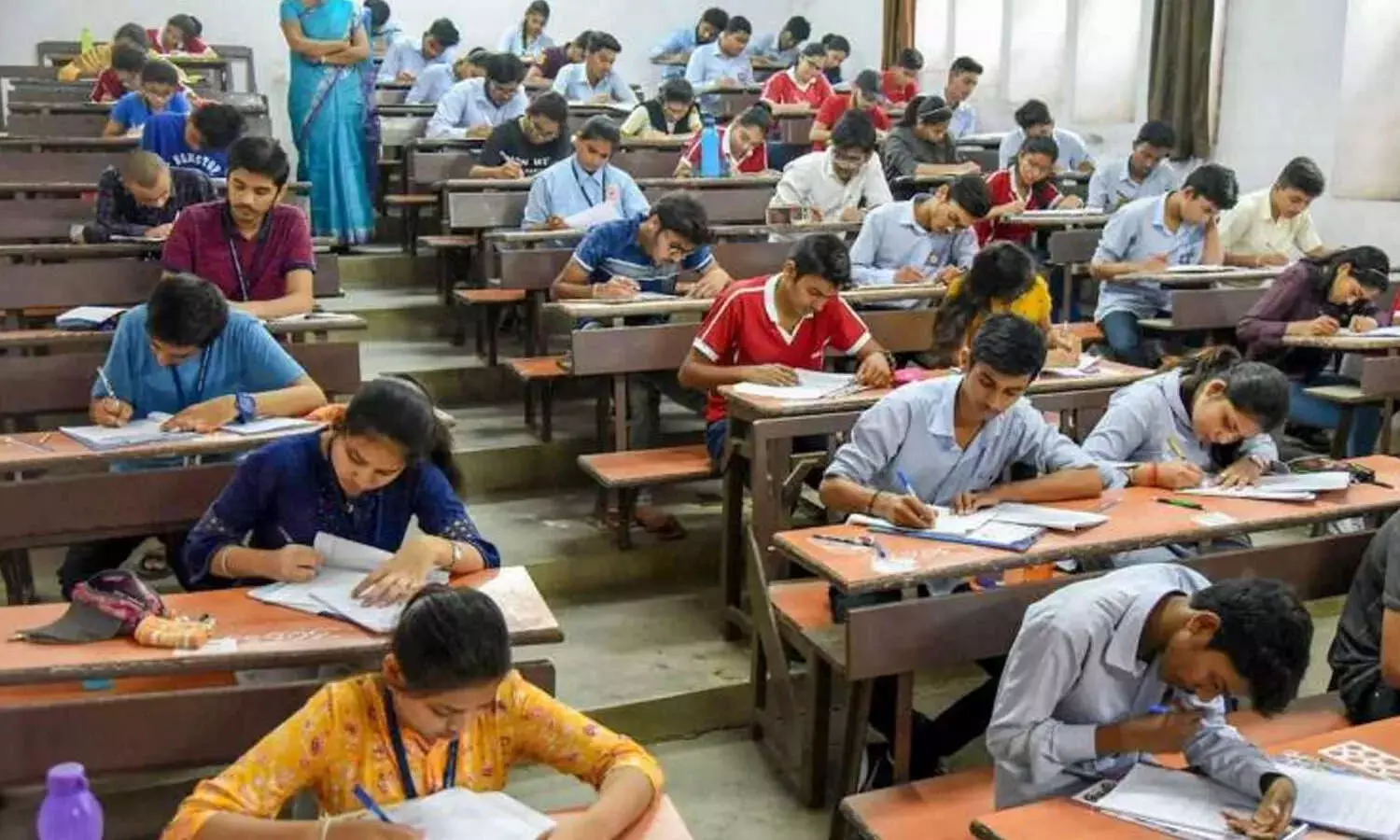AP Inter 2025–26: Board announces new pass marks, revised subject-wise pattern
The new validation rules will be applicable for first-year students from 2025–26 and for second-year students from 2026–27 onwards
By - Newsmeter Network |
AP Inter 2025–26: Board announces new pass marks, revised subject-wise pattern
Amaravati: The Andhra Pradesh Board of Intermediate Education (BIE) has announced a series of key reforms aimed at streamlining subjects, revising pass marks and aligning the curriculum with national standards.
New pass criteria for first and second year
According to the latest notification issued by Dr Narayana Bharath Gupta, Secretary of the Board, students must now score a minimum of 30 per cent in each paper and 35 per cent aggregate marks in one attempt to be declared as passed in the first or second year examinations.
The new validation rules will be applicable for first-year students from 2025–26 and for second-year students from 2026–27 onwards.
Maths 1A and 1B merged into one paper
Mathematics, which until now was split into 1A and 1B papers, will be treated as a single subject going forward. The combined paper will now carry 100 marks, instead of the earlier 75 marks per paper.
The pass mark has also been revised to 35, replacing the earlier minimum of 26 marks per paper. This change is aimed at simplifying the exam structure and reducing paper load for students.
Botany and zoology combined into biology
For students in the BiPC stream, Botany and Zoology will now be taught and assessed as a single subject, Biology. The paper will have 43 marks worth of questions from Botany and 42 marks from Zoology, totalling 85 marks.
First-year students must secure 29 marks to pass, while second-year students need 30 marks. Even if students score 30 per cent in individual papers, they can still pass if their overall average is 35 per cent across all subjects.
Revised pass marks for science subjects
In a student-friendly move, the BIE has slightly reduced the pass marks for major science subjects such as Physics, Chemistry, and Biology.
First-year students: Pass with 29 marks out of 85.
Second-year students: Pass with 30 marks out of 85.
Students who score a combined total of 59 marks across both years will be considered as having passed the subject.
New elective system introduced
The board has introduced a flexible elective system, allowing students from any stream to choose from 24 elective subjects based on their interests and career goals. The move is designed to encourage interdisciplinary learning and offer greater academic freedom.
One-mark questions and new exam pattern
The upcoming first-year public exams will feature one-mark objective-type questions for the first time. Notably, no choice will be provided for these questions. This aims to test conceptual clarity and ensure a more comprehensive assessment of student understanding.
Practical marks and old students’ exemption
Students in Physics, Chemistry, and Biology will continue to have 30 marks allotted to practical examinations. However, the new reforms will not apply to students reappearing for failed subjects under the old syllabus or examination scheme.
Geography and syllabus updates
No major changes have been introduced in the Geography syllabus. It will continue as an optional subject for all groups. The exam pattern remains the same, 75 marks for the written test, which will be scaled up to 85 marks during evaluation.
NCERT curriculum to be implemented
The Intermediate Board has confirmed that the NCERT syllabus will be implemented from this academic year across all subjects. This step aims to align Andhra Pradesh’s Intermediate education system with national academic standards, ensuring uniformity and better preparation for competitive examinations.
Exam schedule and fee details
The Intermediate Public Examinations (IPE) for 2026 will commence on February 23, 2026. The board has started accepting examination fees, and students can submit their fees with a late fine of Rs 1,000 up to October 30.